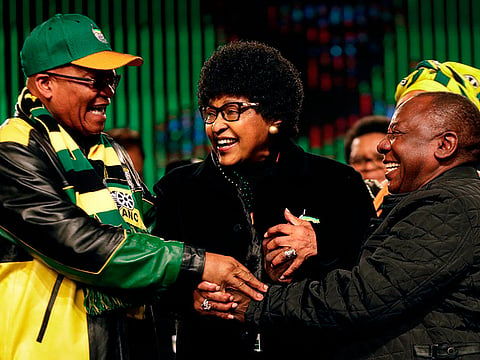Loved and loathed, Winnie earned her place in history
When the history of the ANC-led liberation movement is told, her place will never be in doubt

Winnie Madikizela-Mandela is gone , and her death is an opportunity for South Africa to reflect on whether the ruling African National Congress (ANC) has done enough in government to honour the sacrifices made by the anti-apartheid liberation fighters.
To the end she provoked both adulation and loathing .
On one side of the divide are those who acknowledge the historical role that Winnie Mandela played in mobilising young people against the apartheid system, openly leading defiance against it. But on the other, of course, are many foes and critics. Winnie was arrested several times by the security forces and faced torture and other forms of violence. She became hardened by her personal experience under apartheid, to the point where her commitment to sabotaging the system might have seen her crossing too many lines, most specifically with regard to allegations concerning the disappearance of one of the youths who belonged to the Mandela Football Club that Winnie controlled.
When the truth and reconciliation commission got under way after a peaceful transition in South Africa, Winnie openly criticised the process as incapable of bringing true reconciliation. This is where she nailed her colours to the mast about post-apartheid dispensation: It was too conciliatory. It lacked a sense of justice. She was against forgiving some of the crimes committed by apartheid forces. She was doubtful about the way the ANC was to lead society, and she said so. For Winnie and those who fought against the apartheid government on South Africa soil, the ANC had relinquished its historical mandate to secure a full revolution in South Africa by being too conciliatory.
She also did not have a good relationship with the ANC during Thabo Mbeki’s presidency. And she also grew more isolated from the party during Jacob Zuma’s tenure. In that period, she had the courage to speak out about her belief that the party was pursuing the wrong course, particularly on corruption. Still, in the last few years of her life, Winnie regained her stature as the voice of reason in the country and within the ANC. Her legacy in South Africa will be a controversial one, but when the history of the ANC-led liberation movement is told, her place will never be in doubt.
— Ralph Mathekga/Guardian News & Media Ltd
Ralph Mathekga is a South African political analyst.


